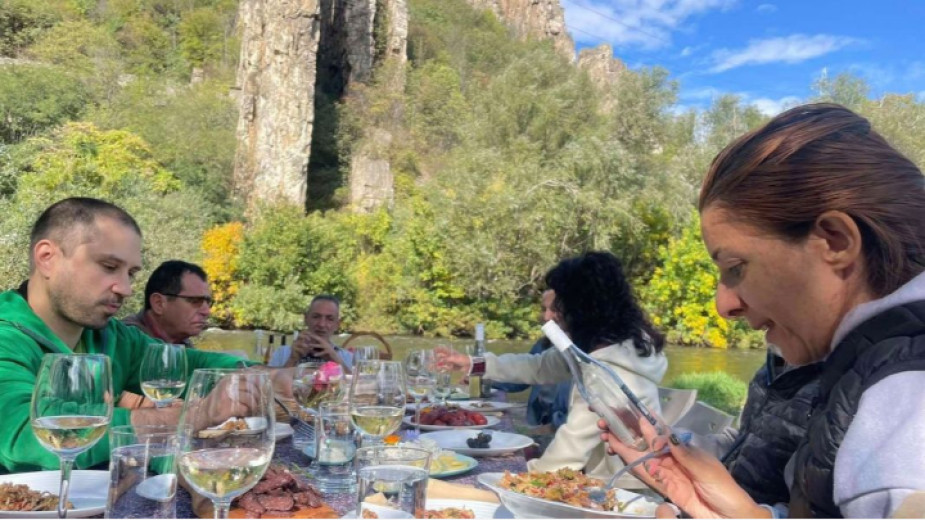 7
7
Located against the backdrop of the sheer cliffs of the Iskar Gorge, the village of Lyutibrod has evolved into an emblem of wine tourism in the country. Known most of all for a natural rock phenomenon called Ritlite, which is a marker for where the Northwest begins, this quaint corner of the country has been home to wine traditions and a cultural heritage going back to the time of the Thracians.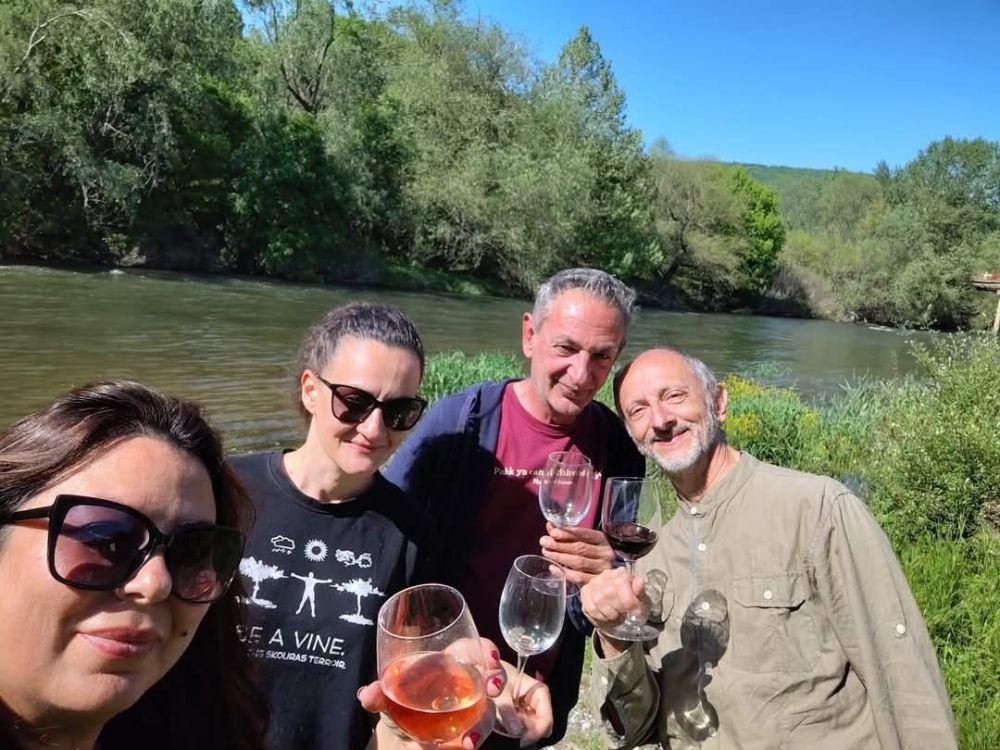
Here, amidst the ruins of Medieval churches, Roman artifacts and Hristo Botev legends, Dimitar Dimitrov and IvanaTsakova have created an unforgettable wine experience. Their guests are so taken with the breathtaking views of Ritlite and the fragrant wine, that some have been known to miss their return train and others – to refuse to leave the place at all. In an interview with Radio Bulgaria, Dimitar talks about the three years in which they have been organizing wine picnics on the banks of the River Iskar and against the backdrop of the Ritlite cliffs:
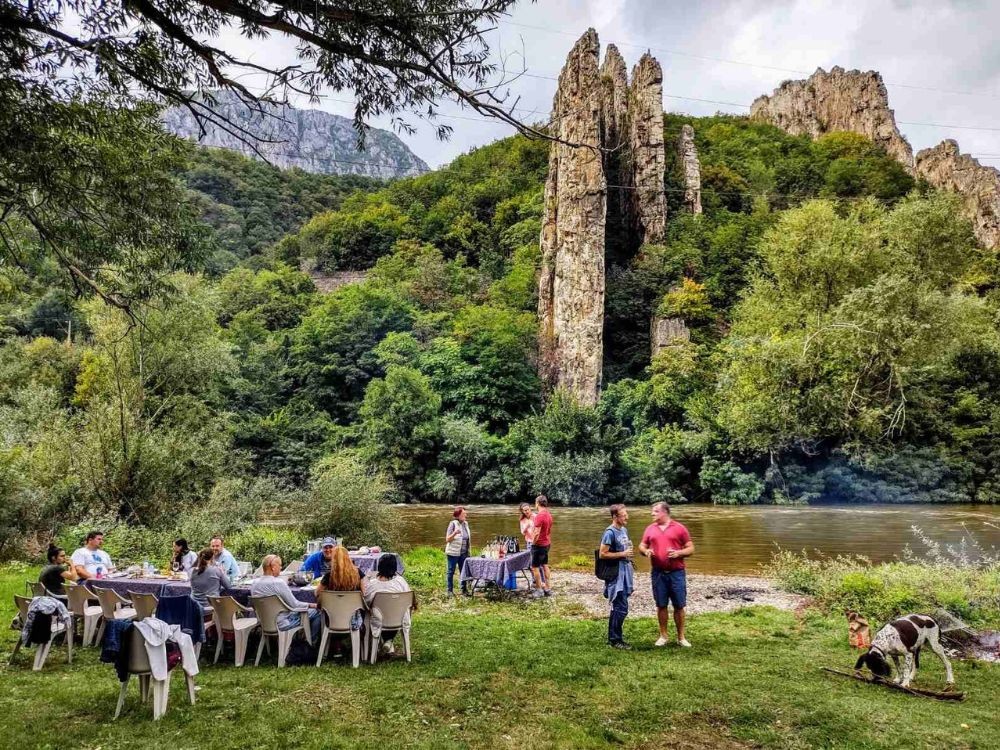
“When we were starting our wine tourism business, we decided to make it unconventional – something the others are not doing. Since we don’t have a cellar, we invite our guests to enjoy the wines of our colleagues from the region. We called our wine tourism “Gateway to the Northwest” because Ritlite really and truly are the gateway where the Northwest begins with the best of wine and culinary traditions. There are five wine cellars in the environs of the town of Vratsa alone, within a radius of 30-40 kms. The branch has developed at a rapid pace here in the past 10 years or so – varieties are created like Vratsa Misket, Vratsa Temenuga, Gamza, Rubin etc.”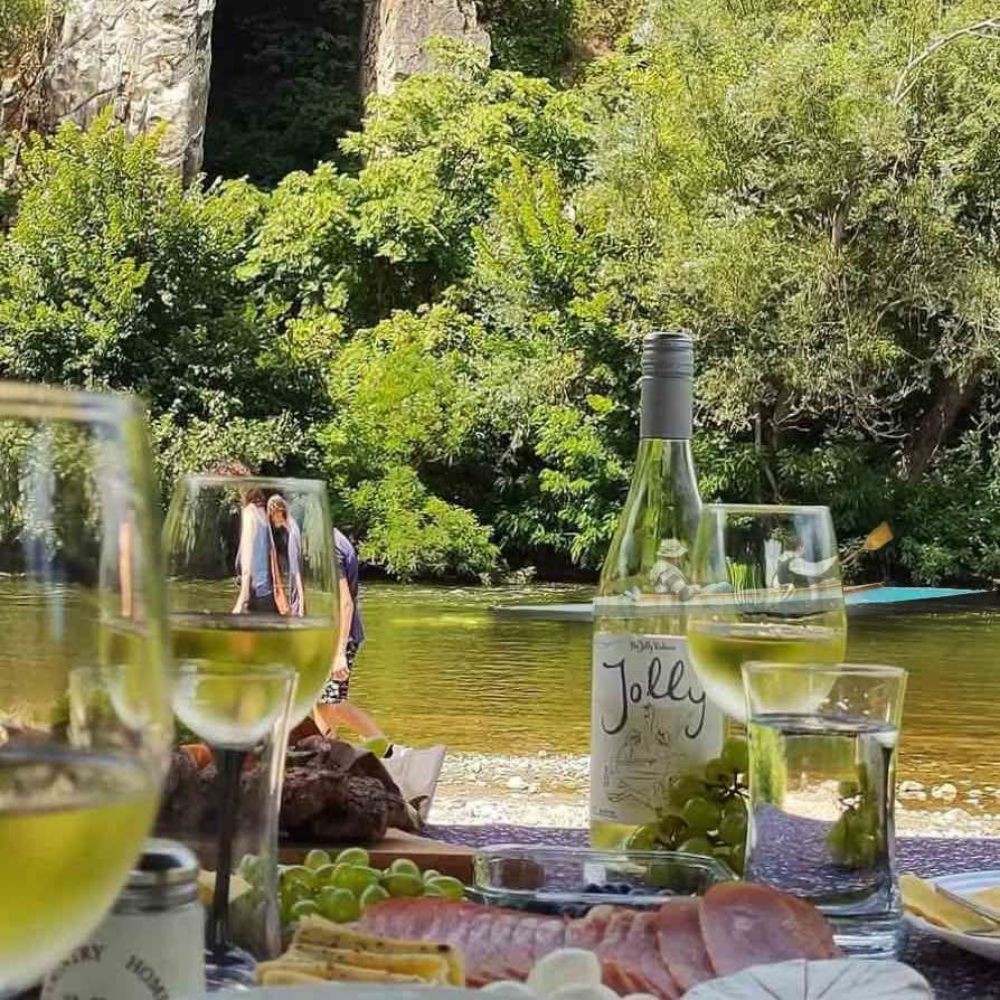
The wine journey to the Iskar Gorge brings in Bulgarian tourists, but also tourists from Spain, Germany, Switzerland, Austria and even India.
“It is really important to connect wine with some kind of experience or with some other thing that will lend it emotional value. When people come to us, to this wonderful part of the country, and when they taste the wines of the Northwest, they form a strong bond with the wine, with the people who made it, with the place itself. As to its sommelier or technological qualities, the wines from this region are on a par with the top wines of the world,” Dimitar says. 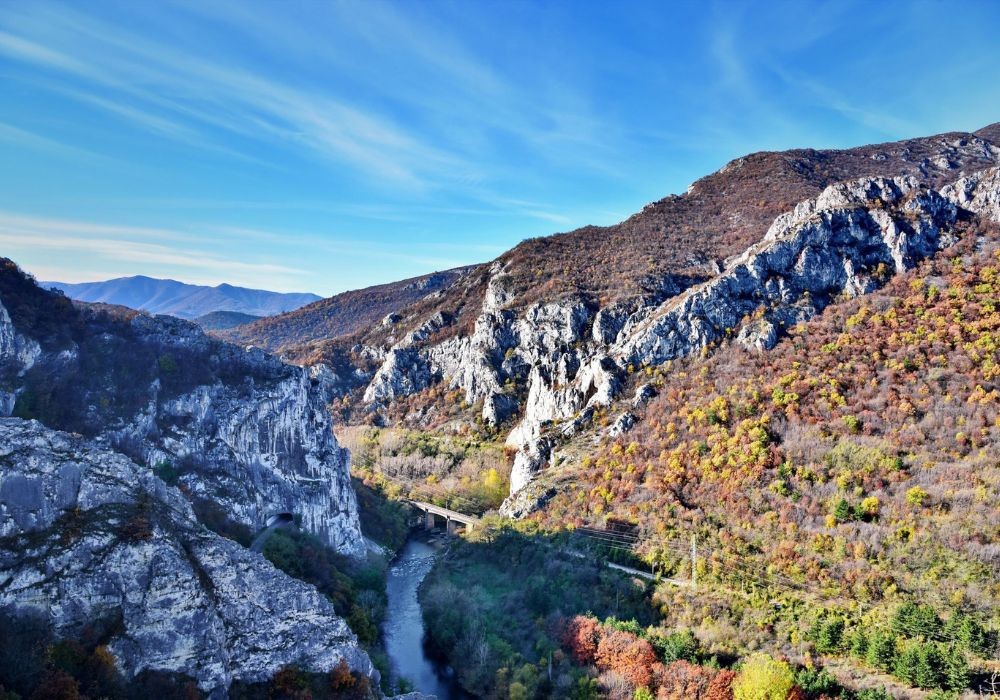
The wine tasting sessions are combined with rambles in the Balkan Range, and hikes to Cherepish Monastery, to the remains of Medieval fortresses or ancient sanctuaries.
“We are blessed to have a train. You can catch it from Sofia. It really is a big advantage, because anyone who wants to take part in a wine picnic can enjoy the wine-drinking because they will not have to be driving back,” Dimitar says. “The train from Sofia takes about two hours. They arrive in Lyutibrod. We meet them at the station. Then we take a walk of around an hour and a half or two. After that we go back to the bank of the River Iskar where we have set a table laden with local food and wine. The food we serve here is exclusively from local producers – cold cuts, dairy products and other kinds of culinary surprises. We present every wine, we present who we are, we talk about wine.”
Visitors from Bulgaria and abroad are thrilled by the nature in the gorge, combined with the wines of the Northwest. Dimitar likes to go back to an episode he says he will not forget when a group of foreign wine journalists and tradesmen exclaimed, as they stood in front of the Ritlite, wineglasses in hand: This is the greatest place in the world for drinking wine!
More:
Translated and posted by Milena Daynova
Photos: Veselite vinari
In a small village hidden in the heart of the Devetashko Plateau, life pulses with admirable energy. Karpachevo has become a symbol of how a community, united by a shared purpose, can defy demographic decline and breathe new life into a fading region...
The panoramic platform “The Peak,” a beloved spot among tourists in the Rhodope Mountains, has been renovated. On the initiative of the “Krepostta – Mogilitsa” Tourist Association, the facility - located at 1,351 meters above sea level - was repaired..
The National Tourism Board will create a cultural tourism calendar for the country, announced Martin Zahariev, Deputy Chairman of the Board, during the "Destination Bulgaria in Focus for 2026" conference, as reported by the Bulgarian News Agency (BTA)...

+359 2 9336 661
